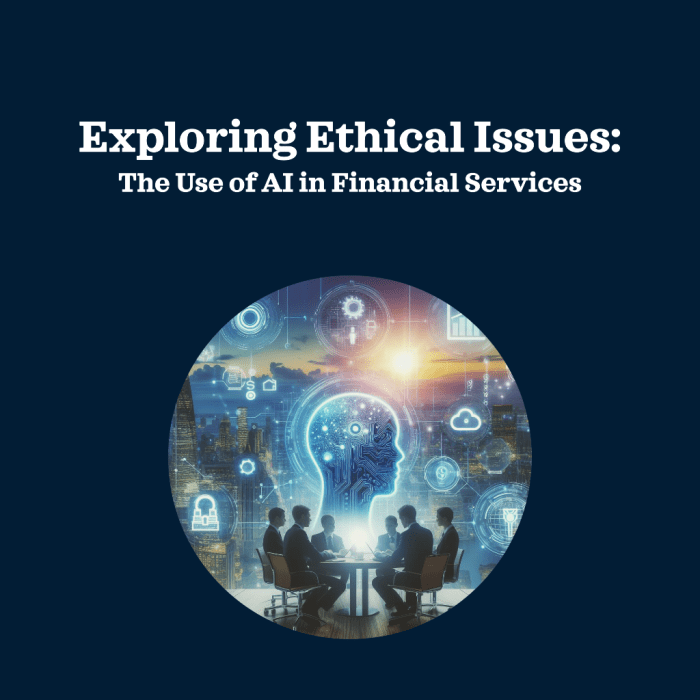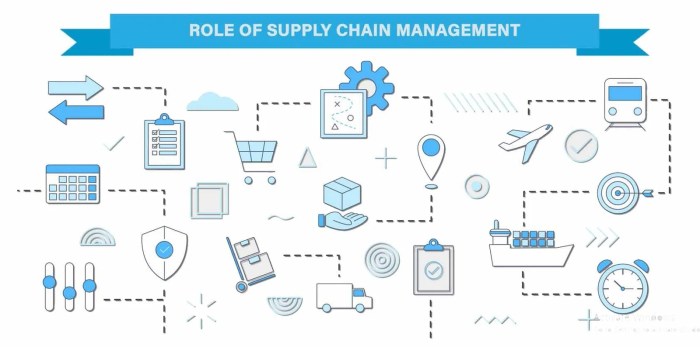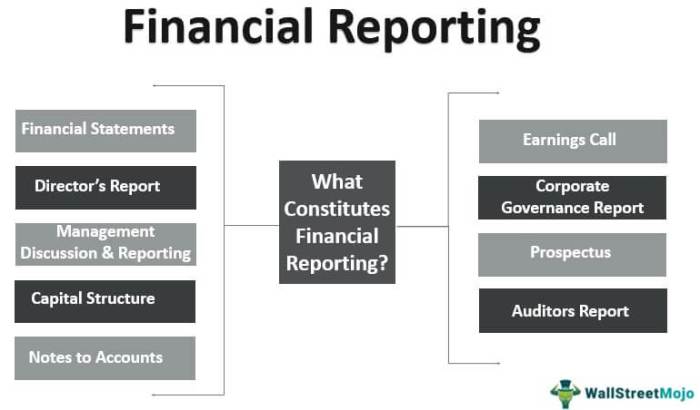The Ethical Dilemmas in Global Financial Reporting sets the stage for a compelling examination of the complexities inherent in international finance. This exploration delves into the challenges of enforcing consistent accounting standards across diverse cultural landscapes, highlighting instances where differing interpretations lead to ethical conflicts. We will investigate the crucial roles of auditors, corporations, and regulatory bodies in maintaining transparency and accountability within the global financial system.
From the impact of cultural nuances on reporting practices to the growing significance of Environmental, Social, and Governance (ESG) factors, this analysis will illuminate the multifaceted nature of ethical dilemmas in global finance. We will examine how transparency and disclosure impact trust in financial markets and discuss strategies for combating fraud and corruption. The ultimate goal is to shed light on the critical need for robust ethical frameworks to ensure the integrity and stability of the global financial system.
International Accounting Standards and Their Ethical Implications: The Ethical Dilemmas In Global Financial Reporting
The adoption of International Financial Reporting Standards (IFRS) aimed to harmonize global financial reporting, fostering greater transparency and comparability across international markets. However, the journey towards consistent application and interpretation presents significant ethical challenges stemming from diverse cultural contexts, varying enforcement mechanisms, and the inherent complexities of accounting itself. This section explores these challenges and their ethical implications.
Challenges in Enforcing Consistent Application of IFRS Globally
Achieving uniform application of IFRS globally is hampered by several factors. Enforcement relies heavily on individual countries’ regulatory bodies, leading to variations in the rigor and effectiveness of implementation. Resources available for enforcement differ significantly between developed and developing nations, creating a disparity in the level of compliance. Furthermore, the sheer complexity of IFRS standards themselves contributes to inconsistencies, as different interpretations can arise even among experienced professionals. The lack of a single, globally recognized enforcement body also contributes to this challenge. This inconsistency can create opportunities for manipulation and unethical practices, undermining the intended benefits of IFRS.
Cultural Differences Impacting Financial Reporting Practices
Cultural nuances significantly influence financial reporting practices. For example, some cultures prioritize long-term relationships and trust, potentially leading to less emphasis on strict adherence to rules and regulations compared to cultures that prioritize legal compliance. Different attitudes towards risk and uncertainty also affect how companies approach accounting practices. A culture with a high tolerance for risk might adopt more aggressive accounting policies than one with a lower risk tolerance. Further, variations in accounting education and professional standards across countries contribute to inconsistencies in the interpretation and application of IFRS. These differences can create a fertile ground for ethical dilemmas when companies navigate the tension between local customs and international standards.
Differing Interpretations of Accounting Standards Leading to Ethical Dilemmas
Ambiguities within IFRS standards themselves often lead to differing interpretations, creating potential for ethical dilemmas. For instance, the application of fair value accounting can be subjective, leading to variations in how assets and liabilities are reported. This subjectivity can be exploited for manipulation, either intentionally or unintentionally, resulting in misleading financial statements. Similarly, the recognition and measurement of intangible assets can be complex and prone to bias, depending on the interpretation of the standards. This creates a situation where companies might choose interpretations that benefit them, even if they are not fully aligned with the spirit of IFRS, presenting a significant ethical challenge.
Role of Professional Accounting Bodies in Addressing Ethical Challenges
Professional accounting bodies, such as the International Federation of Accountants (IFAC), play a crucial role in mitigating ethical challenges related to IFRS. They establish codes of ethics for accountants, promoting professional integrity and guiding their decision-making processes. These bodies also provide training and guidance on the interpretation and application of IFRS, striving to enhance consistency and reduce ambiguities. Further, they engage in advocacy efforts, promoting the importance of ethical conduct and advocating for stronger enforcement mechanisms globally. However, the effectiveness of these bodies depends on their ability to adapt to evolving global contexts and the continued commitment of individual accountants to uphold ethical standards.
Hypothetical Scenario: Conflict Between Local Regulations and International Standards
Imagine a hypothetical scenario where a multinational corporation operating in Country X faces a conflict between Country X’s local tax regulations and IFRS. Country X requires companies to use a specific depreciation method for certain assets that differs significantly from the method prescribed by IFRS. Following the local regulations would result in a higher reported profit for tax purposes but would present a materially different financial picture to investors following IFRS. The ethical dilemma arises in choosing between complying with local regulations to minimize tax liabilities and adhering to IFRS to ensure transparency and comparability for international stakeholders. The company must carefully weigh the potential legal consequences of non-compliance with local regulations against the ethical implications of potentially misleading international investors. A transparent disclosure of the difference in accounting treatments and the reasoning behind the choice is crucial in such a situation, even if it means potentially lower profits reported under IFRS.
Transparency and Disclosure in Global Finance
Transparency in global financial markets is paramount for fostering trust among investors, creditors, and other stakeholders. Without open and honest reporting, the stability and efficiency of these markets are significantly compromised, leading to potential economic instability and hindering economic growth. A robust system of transparency ensures informed decision-making and facilitates efficient capital allocation.
The Importance of Transparency in Building Trust
Transparency, in the context of global finance, refers to the readily available and easily understandable presentation of financial information. This includes not only the accurate reporting of financial data but also the clear communication of risks, uncertainties, and potential conflicts of interest. When companies are transparent, investors and other stakeholders can confidently assess the financial health and prospects of the organization, making informed investment decisions and reducing the risk of fraud and manipulation. This, in turn, promotes confidence in the overall financial system.
Practices Hindering Transparency in Financial Reporting
Several practices routinely impede transparency. One significant issue is the use of complex and opaque accounting practices, which can obscure the true financial position of a company. The deliberate omission or misrepresentation of material information is another major obstacle. This can involve hiding losses, understating liabilities, or overstating assets. Furthermore, inadequate internal controls and a lack of independent auditing can contribute to a lack of transparency. Finally, jurisdictional differences in accounting standards and enforcement create inconsistencies and difficulties in comparing financial reports across different countries.
Ethical Responsibilities of Companies Regarding Material Information Disclosure
Companies have a strong ethical responsibility to disclose all material information that could reasonably influence the decisions of investors and other stakeholders. Material information includes any fact that would significantly alter the perception of the company’s financial position, performance, or prospects. Failing to disclose material information constitutes a breach of trust and can lead to significant legal and reputational damage. Ethical companies prioritize accurate and timely disclosure, ensuring that all relevant information is presented in a clear and understandable manner. This commitment to transparency builds stakeholder confidence and contributes to a more stable and efficient market.
Comparison of Transparency Requirements Across Jurisdictions
Transparency requirements vary significantly across jurisdictions. Some countries, like the United States, have stringent regulations and enforcement mechanisms, while others have less robust frameworks. The European Union, for example, has implemented comprehensive regulations aimed at improving transparency in financial markets, including the introduction of IFRS (International Financial Reporting Standards). However, even within regions with similar regulations, enforcement can vary, leading to inconsistencies in the level of transparency achieved. This disparity can create challenges for international investors attempting to compare and assess the financial health of companies operating in different jurisdictions.
Benefits and Drawbacks of Increased Transparency
| Benefit | Drawback | Benefit | Drawback |
|---|---|---|---|
| Increased investor confidence | Potential for competitive disadvantage | Improved capital allocation | Increased regulatory burden |
| Reduced risk of fraud and manipulation | Disclosure of sensitive information | Enhanced market efficiency | Increased costs of compliance |
| Greater accountability for companies | Potential for market volatility | Improved corporate governance | Difficulty in comparing companies across jurisdictions |
The Role of Auditors in Maintaining Ethical Standards

Auditors play a crucial role in the global financial system, acting as independent gatekeepers who ensure the accuracy and reliability of financial statements. Their ethical obligations are paramount, impacting investor confidence, market stability, and the overall integrity of the financial reporting process. A failure in ethical conduct by auditors can have far-reaching consequences.
Ethical Obligations of Auditors
Auditors have a fundamental ethical obligation to act with integrity, objectivity, and professional skepticism. This means they must be independent in both fact and appearance, conducting their audits without bias or influence from the client. They are required to adhere to professional standards, including generally accepted auditing standards (GAAS) and International Standards on Auditing (ISAs), which Artikel the necessary procedures and methodologies for conducting a thorough and unbiased audit. This includes properly planning and executing the audit, obtaining sufficient appropriate audit evidence, and documenting their findings accurately and completely. A failure to meet these obligations can lead to the issuance of unqualified audit opinions on materially misstated financial statements.
Examples of Auditor Independence Failures and Their Ethical Implications
Several high-profile cases illustrate the devastating consequences of auditor independence failures. The collapse of Enron, for instance, highlighted the dangers of close relationships between auditors and clients, leading to compromised objectivity and a failure to detect fraudulent activities. Arthur Andersen, Enron’s auditor, faced severe penalties and ultimately dissolved due to its involvement in the scandal. Similarly, the WorldCom accounting scandal demonstrated the ethical implications of overlooking fraudulent accounting practices due to pressure from management or a lack of professional skepticism. These failures eroded public trust in the auditing profession and highlighted the importance of strict independence rules.
Impact of Auditor Rotation on the Quality of Audits
Auditor rotation, the mandatory change of audit firms after a certain period, is a mechanism designed to enhance auditor independence. Proponents argue that it reduces the potential for familiarity bias and the development of overly close relationships between auditors and clients. However, opponents suggest that rotation can lead to a decrease in audit quality, particularly in the initial years of a new auditor’s engagement, as they may lack the same level of familiarity with the client’s business and operations. Empirical evidence on the impact of auditor rotation on audit quality is mixed, with some studies showing a positive effect and others showing no significant impact or even a negative one. The overall effectiveness of auditor rotation remains a subject of ongoing debate and research.
Best Practices for Promoting Ethical Conduct Among Audit Firms
Promoting ethical conduct within audit firms requires a multi-faceted approach. This includes robust ethics training programs for all personnel, clear codes of conduct, and strong internal control systems to prevent and detect ethical violations. Independent oversight bodies, such as regulatory agencies and professional accounting organizations, play a vital role in monitoring audit firm practices and enforcing ethical standards. Furthermore, a culture of ethical behavior must be fostered from the top down, with leadership setting a clear example and encouraging open communication about ethical dilemmas. Whistleblower protection mechanisms are also crucial to ensure that individuals can report ethical violations without fear of retaliation.
Potential Conflicts of Interest Faced by Auditors in Global Settings
Auditors in global settings face a unique set of potential conflicts of interest. These include pressure to secure and retain clients in competitive markets, cultural differences in ethical norms and expectations, and the complexities of navigating international accounting standards and regulatory frameworks. The potential for bribery and corruption in certain jurisdictions presents a significant ethical challenge. Additionally, auditors may face conflicts of interest when providing multiple services to the same client, such as audit, tax, and consulting services, which can compromise their independence. The global nature of many businesses further complicates the situation, requiring auditors to navigate differing legal and regulatory environments. Managing these potential conflicts requires a heightened awareness of ethical considerations and a commitment to maintaining professional skepticism and independence.
Corporate Social Responsibility and its Impact on Financial Reporting
The integration of environmental, social, and governance (ESG) factors into financial reporting is rapidly evolving from a niche concern to a mainstream expectation. Investors, consumers, and regulators are increasingly demanding transparency and accountability regarding a company’s impact beyond its purely financial performance. This shift reflects a growing recognition that long-term value creation depends on responsible business practices that consider the broader societal and environmental context.
The increasing importance of ESG factors stems from a multitude of influences. Investors are recognizing the materiality of ESG risks and opportunities to long-term profitability. Consumers are increasingly choosing to support businesses aligned with their values. Moreover, regulatory pressure is mounting, with governments implementing stricter ESG disclosure requirements. This convergence of forces is driving a fundamental re-evaluation of what constitutes comprehensive financial reporting.
ESG Factor Incorporation Challenges
Standardizing the measurement and reporting of ESG performance presents significant challenges. The lack of universally accepted metrics and methodologies makes comparisons between companies difficult, hindering meaningful analysis and investment decisions. Data collection can be complex and costly, particularly for smaller businesses. Furthermore, the subjective nature of some ESG factors, such as social impact, makes quantifiable measurement challenging. Inconsistency in reporting frameworks further complicates the situation, making it difficult to assess a company’s true ESG performance. For example, while carbon emissions can be relatively easily quantified, measuring a company’s contribution to community development requires a more nuanced and subjective approach. This lack of standardization creates an uneven playing field and limits the effectiveness of ESG reporting.
Greenwashing and its Impact on Credibility
Greenwashing, the practice of making misleading or unsubstantiated claims about a company’s environmental or social performance, severely undermines the credibility of corporate sustainability reports. Companies might exaggerate their sustainability efforts, selectively highlight positive aspects while ignoring negative ones, or use vague and ambiguous language to create a false impression of responsibility. This deceptive practice erodes trust in ESG reporting and can lead to investor backlash and reputational damage. For example, a company might claim to be carbon-neutral without disclosing significant indirect emissions from its supply chain. This misrepresentation of environmental impact, if discovered, could lead to substantial financial and reputational repercussions.
Corporate Social Responsibility Reporting Frameworks
Several frameworks exist for reporting on corporate social responsibility (CSR), each with its strengths and weaknesses. The Global Reporting Initiative (GRI) Standards offer a comprehensive framework for sustainability reporting, covering a wide range of environmental, social, and economic aspects. The Sustainability Accounting Standards Board (SASB) focuses on material ESG issues that are financially material to specific industries. The Task Force on Climate-related Financial Disclosures (TCFD) provides recommendations for disclosing climate-related risks and opportunities. The choice of framework depends on a company’s specific needs and priorities, and the absence of a single, universally accepted standard remains a significant obstacle to comparability and consistency in CSR reporting. These frameworks, while aiming for greater transparency, often require substantial resources and expertise to implement effectively.
Interconnectedness of Financial Performance and Social Responsibility, The Ethical Dilemmas in Global Financial Reporting
A visual representation could be a Venn diagram. One circle represents strong financial performance (profitability, growth, shareholder value), the other represents strong social responsibility (environmental sustainability, ethical labor practices, community engagement). The overlapping area represents the synergistic relationship between the two. Strong social responsibility can lead to improved brand reputation, enhanced customer loyalty, and reduced operational risks, ultimately boosting financial performance. Conversely, strong financial performance can provide the resources necessary to invest in social and environmental initiatives. This mutual reinforcement demonstrates that social responsibility is not just a cost, but a strategic imperative for long-term value creation. A company neglecting its social responsibilities risks damage to its reputation, loss of investor confidence, and ultimately, reduced financial performance.
Combating Fraud and Corruption in Global Financial Reporting
The integrity of global financial markets hinges on the effective prevention and detection of fraud and corruption. Manipulated financial statements erode investor confidence, destabilize economies, and undermine the very foundation of trust upon which these markets operate. Addressing this challenge requires a multi-faceted approach encompassing robust regulatory frameworks, enhanced corporate governance, and a commitment to ethical conduct at all levels.
Methods of Manipulating Financial Statements
Financial statement manipulation involves a range of deceptive practices designed to misrepresent a company’s financial performance or position. These methods often exploit weaknesses in accounting standards or internal controls. Common techniques include revenue recognition fraud (e.g., prematurely recognizing revenue or recording fictitious sales), asset overstatement (e.g., inflating the value of inventory or property, plant, and equipment), expense understatement (e.g., delaying the recognition of expenses or capitalizing expenses that should be expensed), and liabilities understatement (e.g., failing to record liabilities or understating their value). More sophisticated schemes might involve the creation of shell companies or the use of complex financial instruments to obscure fraudulent activities. The sophistication of these methods necessitates equally sophisticated detection techniques.
Factors Contributing to Global Financial Fraud
Several factors contribute to the prevalence of financial fraud on a global scale. Weak corporate governance structures, characterized by ineffective boards of directors, inadequate internal controls, and a lack of oversight, create fertile ground for fraudulent activity. A culture of ethical indifference or outright complicity within an organization can also facilitate fraud. Globalized financial markets, with their complex cross-border transactions and regulatory differences, can present challenges in detecting and preventing fraud. Furthermore, the pressure to meet unrealistic financial targets, coupled with a lack of transparency and accountability, can incentivize fraudulent behavior. Finally, inadequate enforcement of existing regulations and a lack of resources for investigative bodies can hamper efforts to combat financial crime.
The Role of Whistleblowers in Uncovering Financial Wrongdoing
Whistleblowers play a crucial role in uncovering financial wrongdoing. They are individuals who report illegal or unethical activities within their organizations. Their actions often trigger investigations that lead to the exposure of fraud and the prosecution of those responsible. However, whistleblowers often face significant personal and professional risks, including retaliation, job loss, and reputational damage. Strong whistleblower protection laws are essential to encourage individuals to come forward without fear of reprisal. These laws should guarantee anonymity, provide legal protection, and establish clear procedures for reporting and investigating allegations of wrongdoing. Effective whistleblower programs, including confidential reporting mechanisms and independent investigations, are crucial components of a robust anti-fraud framework.
Examples of Successful Anti-Corruption Initiatives
Several successful anti-corruption initiatives illustrate the effectiveness of proactive measures. The establishment of independent anti-corruption agencies, such as the Serious Fraud Office in the UK, has significantly improved the detection and prosecution of financial crimes. The adoption of stricter accounting standards and increased regulatory oversight, such as the Sarbanes-Oxley Act in the US, has enhanced corporate transparency and accountability. International cooperation among regulatory bodies, through information sharing and coordinated investigations, is vital in combating cross-border financial fraud. For example, the establishment of the Financial Action Task Force (FATF) has significantly contributed to international efforts to combat money laundering and terrorist financing.
Recommendations for Strengthening Corporate Governance to Prevent Financial Fraud
Strengthening corporate governance is paramount in preventing financial fraud. This requires a comprehensive approach encompassing several key elements. Boards of directors should be composed of independent and competent individuals with a strong commitment to ethical conduct. Robust internal control systems, including segregation of duties, regular audits, and a strong compliance function, are crucial in detecting and preventing fraud. A strong ethical culture, fostered through leadership commitment and effective training programs, can significantly reduce the likelihood of fraudulent activity. Regular risk assessments, focusing on potential vulnerabilities and fraud risks, should be conducted and addressed proactively. Finally, transparent and timely financial reporting, adhering to high accounting standards, promotes accountability and reduces the opportunity for manipulation. These measures, when implemented effectively, can create a significant deterrent to financial fraud and foster a culture of integrity within organizations.
Final Summary
In conclusion, navigating the ethical dilemmas in global financial reporting requires a multi-pronged approach. Strengthening international accounting standards, promoting auditor independence, fostering corporate transparency, and implementing robust anti-corruption measures are all crucial steps. Ultimately, fostering a culture of ethical conduct throughout the global financial ecosystem is paramount to maintaining trust, stability, and sustainable growth. The challenges are significant, but the pursuit of ethical and transparent financial practices remains a vital endeavor for the global community.
FAQ Resource
What are some common examples of ethical conflicts arising from cultural differences in financial reporting?
Different cultures may have varying views on what constitutes material information, acceptable accounting practices, and the level of transparency required. For example, some cultures may prioritize relationships over strict adherence to rules, leading to potentially unethical accounting choices.
How can whistleblowers effectively report financial wrongdoing without fear of retaliation?
Strong whistleblower protection laws are essential. These laws should guarantee anonymity, prevent retaliation, and provide a secure channel for reporting suspected financial misconduct. Independent and confidential reporting mechanisms are crucial.
What role do investors play in promoting ethical financial reporting?
Investors can exert significant pressure by demanding greater transparency, engaging with companies on ESG issues, and supporting companies with strong ethical practices. Responsible investing strategies that prioritize ethical considerations can drive positive change.
Get the entire information you require about How to Assess Business Performance Using Financial Reports on this page.









